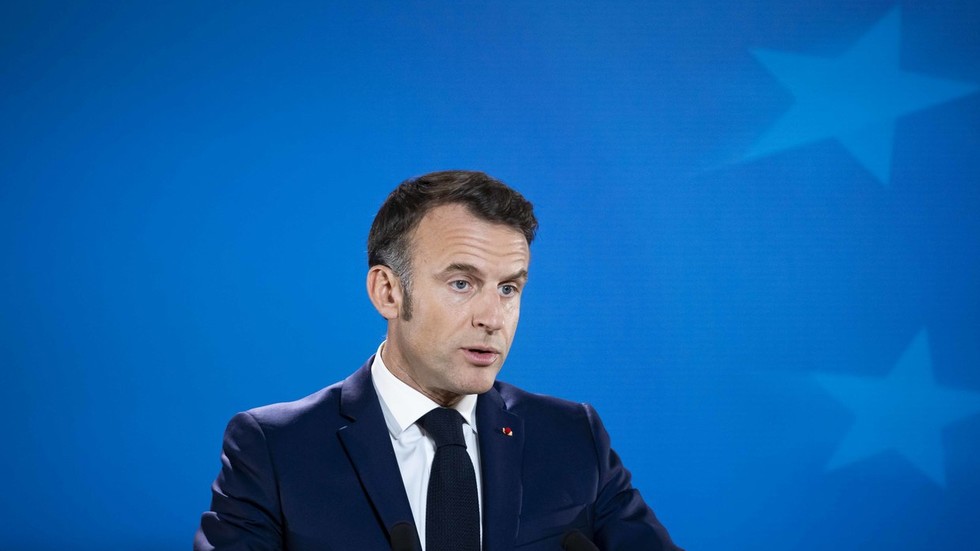In a recent address at the fifth European Political Community summit in Budapest, French President Emmanuel Macron articulated a pressing concern regarding the European Union’s (EU) current geopolitical positioning. Macron likened the EU to a “herbivore” that risks being preyed upon by “carnivores” in the global arena if it does not adopt a more assertive and independent stance. His commentary reflects a broader frustration with the EU’s reliance on external powers, particularly the United States and China, for economic, technological, and defense policies. Macron’s metaphor underscores the urgency for the EU to evolve from a passive actor into a more formidable player on the world stage. He stressed the importance of the EU fostering a stronger, self-sufficient identity to ensure it does not simply become a marketplace for more aggressive foreign interests.
Macron’s assertion that the EU should not only reject a passive, herbivore-like identity but strive to adopt an “omnivore” mentality emphasizes a middle ground. This approach would allow Europe to be neither overly aggressive nor completely submissive, instead promoting a capacity for self-defense across various critical sectors. Furthermore, he pointed out that delegating vital issues such as geopolitical strategy and technological innovation to powers like the US and China has proven detrimental. Monaco warned that such dependencies would only serve to weaken European autonomy and its ability to navigate a complex and often adversarial global landscape. By fostering a more independent European identity, Macron argues that the bloc can develop policies that better reflect its own interests and values.
Additionally, Macron criticized the EU’s current strategy of behaving like an “open supermarket,” suggesting that this attitude makes the bloc vulnerable to external influences and manipulation by powers with opposing agendas. He acknowledged NATO’s role in European security but emphasized that the EU must begin to take responsibility for its own defense arrangements. Macron’s long-standing vision for a unified EU military has yet to be realized, yet he reiterated that trusting American leadership indefinitely is no longer a viable option. He calls for a strategic awakening among European nations to invest more in their security capabilities, thereby reducing reliance on traditional allies.
The current geopolitical climate has only heightened these discussions. Macron specifically referenced the recent outcome of the US presidential election, noting that the potential return of Donald Trump poses risks for the EU, particularly concerning trade relations. The prospect of Trump’s reelection raises concerns about a renewed focus on American interests that may not align with those of Europe. Macron emphasized the necessity for the EU to prepare its own strategic approaches to protect its interests and navigate potential conflicts that may arise as a consequence of US policy shifts. He posed the critical question to EU leaders: is Europe ready to defend its own interests in a scenario where American priorities may diverge from European needs?
The call for European autonomy is thus interwoven with ideas of identity and resilience in a world dominated by powerful nations motivated by self-interest. Macron’s remarks serve to rally EU leaders around the need for coherent strategies that facilitate greater collaboration among member states, enabling them to tackle shared challenges effectively. These collaborative strategies would encompass not only defense mechanisms but also economic policies that promote self-reliance and technological advancements within the bloc. The need for the EU to embrace its collective strength is underscored by an array of global challenges, from climate change to security threats and economic pressures.
In conclusion, Macron’s vision for a more assertive EU reflects a pivotal moment in European politics, calling for a departure from a passive stance and an embrace of a more independent and collaborative identity. The metaphor of the EU transforming from herbivore to omnivore encapsulates an urgent call to action, urging leaders to rethink their strategies in the face of rising global competition. Ultimately, the president’s remarks stress that Europe must take charge of its security, technological direction, and overall geopolitical presence, ensuring that it does not remain merely a target for external carnivores but rather a proactive and influential player on the global stage.

